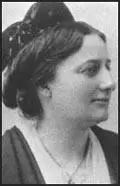Elizabeth Shepley Sergeant

Elizabeth Shepley Sergeant was born in 1881. She became a journalist and in 1918 went to the Western Front as a war correspondent for the New Republic.
In October, 1918, Sergeant was seriously wounded by a grenade. She spent the next six months recuperating in hospitals in France.
After the war Sergeant published an account of her war experiences, Shadow Shapes: The Journal of a Wounded Woman (1920).
Elizabeth Shepley Sergeant died in 1965.
Primary Sources
(1) Elizabeth Shepley Sergeant, journal (21st October, 1918)
I am not to be persuaded that love of adventure makes war good, any more than the spirit of sacrifice, or the patient endurance of pain. Is it good for the world, for his mother, or that the boy himself, who is so gifted for life, that Rick (the son of a friend) should be killed. And for how many individuals of the millions of fighters has this war, after all, been good? To prolong it by one unnecessary day, hour, minute, would be criminally wrong - of that, at least, I am sure.
(2) In her journal, Elizabeth Shepley Sergeant, described being in hospital recovering from her wounds (23rd November, 1918)
A certain amount of bad pain may be good for the moral character - I may as well think so, though I don't really believe in Purgatory. But pain prolonged is degeneration, not purgation. I am losing, coin by coin, the last of the treasure of patience. I have been so carefully hoarding. It has reached the point that I want to remove the head of anyone who merely walks boldly across my floor, thereby causing a faint vibration of my iron bed, which at once communicates itself to my hyper-responsive ankle. I have learned, among my pillows, an art of timid stillness that would give points to a mummy. At moments, as after dressings, it seems quite too perilous to take a long breath.
(3) In May 1919, Elizabeth Shepley Sergeant returned to the United States on the troopship, Rochambeau.
For adventure was only the keen edge of the experience with which our slow-moving Rochambeau is so heavily laden. Tragedy was its blade. I catch an arrowy flash in the clear American sunshine, where young men in civilian clothes move swift beyond the waiting crowds. Their busy patterns of life are traced in something hard and bright.

